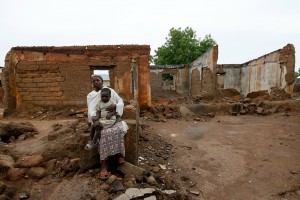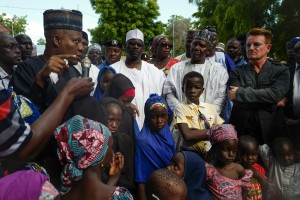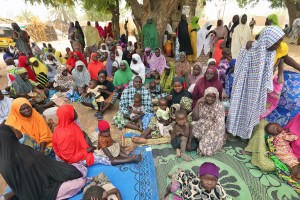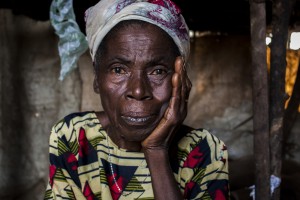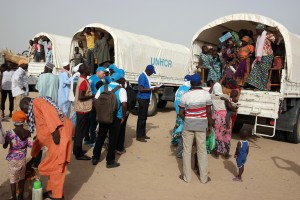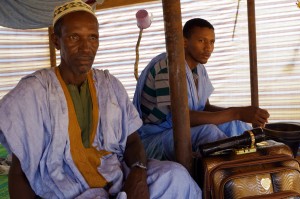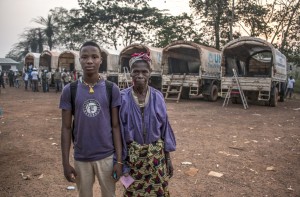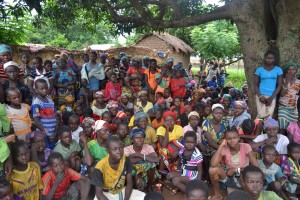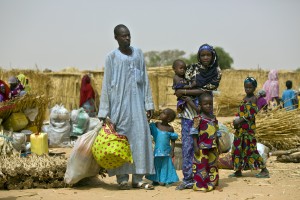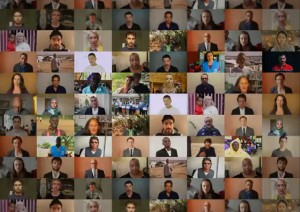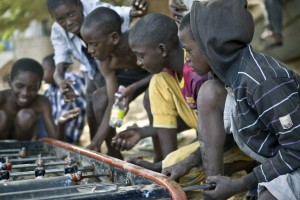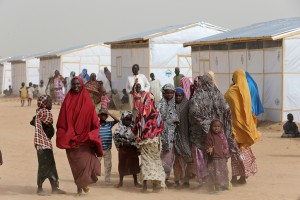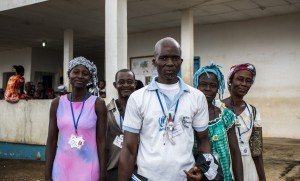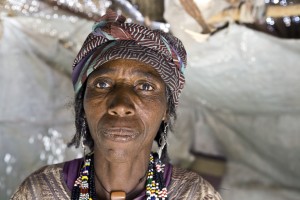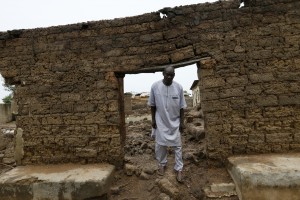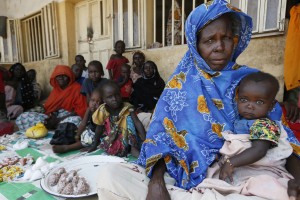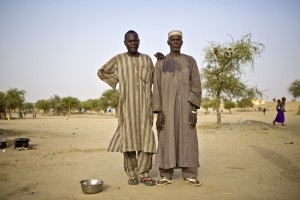Hassan in Mauritania
“Refugees taught me a lesson I will never forget.”
MBERA CAMP, Mauritania, 4 November 2014 (HCR) – In January 2013, with the second wave of Malian refugees fleeing the conflict in Northern Mali at the time of the French military intervention, I was deployed to Mauritania’s Fassala border crossing. Thousands of people were crossing every day. We were working around the clock trying to assist everyone and at the same time trying to coordinate their stay in adequate shelters in Mbera camp*. We were all very busy and trying hard to assist the neediest among the new arrivals.
One morning, I saw a woman from afar. She was hardly able to walk. Her footsteps were very slow and heavy. It seemed like she was going to faint before reaching the border. She was so weak because she had walked for days. I rushed to get closer to her and I realised that she was in labour. I had to react immediately. I barely had the time to take her to the nearby clinic before she gave birth. I was the first one to hold her baby girl in my arms and it was a very special moment. The mother was worried about her newborn and I stayed next to her to comfort her. She was still shaking even after the delivery. She could have died on the way while escaping violence in Mali, under the bombings and the fire shootings. She was anxious, lost and exhausted. All she needed was to be reassured and to rest after her long journey. I kept on visiting the baby and her mother for months to make sure they were doing okay.
I learnt a lot through my experience with UNHCR. I acquired new skills in refugee data collection such as the importance of considering age and gender in order to better respond to the needs of the various groups. I also learnt how to better manage sudden influxes of refugees in terms of organisation and coordination.
But above all, I rediscovered myself. The act of helping others is extremely rewarding. I also learnt a lot from the resilience and strength of the refugees. They defy all the obstacles to reach safety and to secure a future for their children. The mother I helped resisted for tens or hundreds of kilometres. She walked and walked to reach the border, give birth and move on. It is a life lesson that I will never forget.
*Mbera camp is located about 60 km from the border with Mali, it is some 18 km away from the city of Bassikounou.
Interviewed by Dalia Al-Achi, in Mbera camp, Mauritania
Le texte en français:Hassan en Mauritanie
“Les réfugiés m’ont appris une leçon que je n’oublierai jamais”
CAMP DE MBERA, Mauritanie, 4 novembre 2014 (HCR) - En janvier 2013, avec la deuxième vague de réfugiés maliens fuyant le conflit au nord du Mali lors de l’intervention militaire française, j’ai été déployé au passage de la frontière mauritanienne à Fassala. Des milliers de personnes traversaient chaque jour. Nous travaillions jour et nuit pour essayer d’aider tout le monde et en même temps essayer de coordonner leur séjour dans des abris adéquats au camp de Mbera*. Nous étions tous très occupés et essayions d’aider les plus nécessiteux parmi les nouveaux arrivés.
Un matin, j’ai aperçu une femme de loin. Elle arrivait à peine à marcher. Ses pas étaient très lents et lourds. On aurait dit qu’elle allait s’évanouir avant d’atteindre la frontière. Elle était si faible parce qu’elle avait marché pendant des jours. Je me suis dépêché de me rapprocher d’elle et j’ai réalisé qu’elle était en train d’accoucher. J’ai dû réagir immédiatement. J’ai à peine eu le temps de l’emmener à la clinique voisine avant qu’elle n’accouche. J’ai été le premier à tenir sa petite fille dans mes bras et c’était un moment très spécial. La mère s’inquiétait de son nouveau-né et je suis resté à ses côtés pour la réconforter. Elle tremblait toujours, même après l’accouchement. Elle aurait pu mourir en chemin alors qu’elle fuyait les violences au Mali, sous les bombes et les coups de feu. Elle était inquiète, perdue et exténuée. Tout ce dont elle avait besoin, c’était d’être rassurée et de se reposer après son long périple. J’ai continué de rendre visite au bébé et à la maman pendant des mois pour m’assurer qu’ils allaient bien.
J’ai appris beaucoup de choses à travers mon expérience avec le HCR. J’ai acquis de nouvelles compétences dans la collecte de données sur les réfugiés, comme l’importance de prendre en compte l’âge et le sexe afin de mieux répondre aux besoins des différents groupes. J’ai aussi appris à mieux gérer les arrivées soudaines de réfugiés en termes d’organisation et de coordination.
Mais surtout, je me suis redécouvert. Le fait d’aider les autres est extrêmement valorisant. J’ai aussi appris beaucoup de la résilience et de la force des réfugiés. Ils défient tous les obstacles pour se mettre en sécurité et pour assurer un avenir à leurs enfants. La mère que j’ai aidée a résisté pendant des dizaines ou des centaines de kilomètres. Elle a marché et marché pour atteindre la frontière, accoucher et aller de l’avant. C’est une leçon de vie que je n’oublierai jamais.
*Le camp de Mbera est situé à environ 60 km de la frontière avec le Mali et est à près de 18 km de la ville de Bassikounou
Propos recueillis par Dalia Al-Achi, au camp de Mbera, Mauritanie
